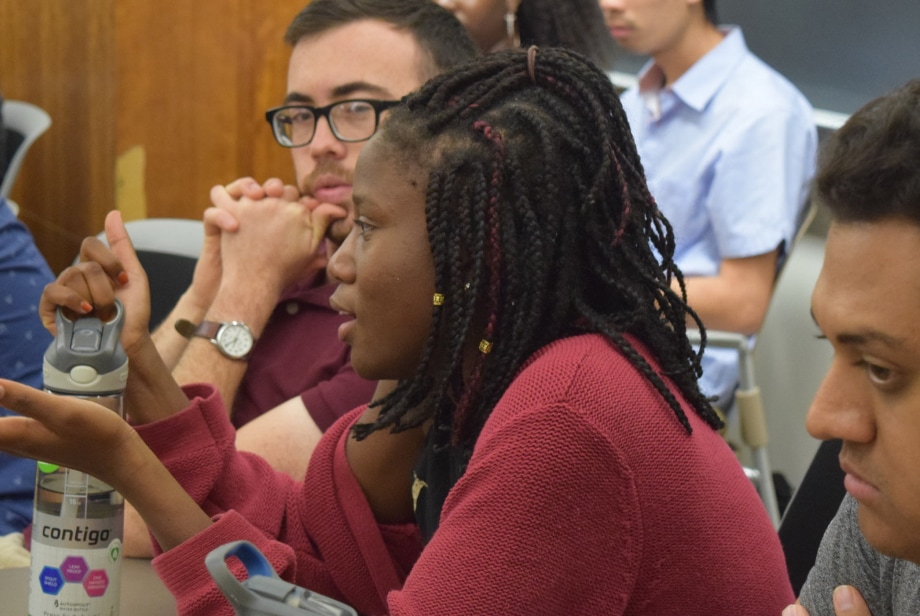Juvenile Justice
Cutting off the foster care-to-prison pipeline.
Children who have been in foster care have a disproportionate risk of being incarcerated at some point in their young lives due to a variety of factors caused by an inequitable and flawed criminal justice system. It’s estimated that a quarter of former foster youth will be involved with the criminal justice system within two years of transitioning out of child welfare. Anecdotally, NFYI staff report that nearly half of our members have juvenile justice or criminal systems involvement — a disturbingly common trend among a diverse group of people.


The reasons are complex and deep-seated across our country. People of color are unjustly over-policed, resulting in an overrepresentation of children of color in both foster care and the criminal justice system. For a typical adolescent, boundary-testing behavior or “acting out” may result in grounding; for a teen in a group home or foster care, the police are often called in for the same sort of behavior — an unnecessary escalation that leads to additional contact with the criminal justice system.
Similarly, police may be called upon to deal with a child struggling with a mental health need and officers may not have the training to handle the situation appropriately. Sixty percent of all child sex trafficking victims have histories in the child welfare system and are often criminalized when what they need are support services. There are also the inequities associated with physical and mental healthcare; the unique trauma that may be experienced within the child welfare system; and lack of mentorship and professional development opportunities.

NFYI IN ACTION
NFYI is working with local and national partners to examine and change the policies and regulations that contribute to the child welfare system-to-justice system pipeline. We are addressing these issues in a variety of ways, including highlighting juvenile justice at the 2021 Virtual Congressional Convening, special programs during National Foster Care Month, and highlighting this issue as an organizational priority in our community engagement efforts. Our members are participating in Congressional Briefings and town halls on the topic and have made policy recommendations that address the foster care-to-prison pipeline and parent/foster youth visitation. NFYI’s Los Angeles and Michigan Local Chapters are also organizing around juvenile justice reform locally.
Foster Youth Facts & Figures:

90% of foster children will come into contact with the juvenile justice system before leaving child welfare
Your voice matters. Help us make a change.


